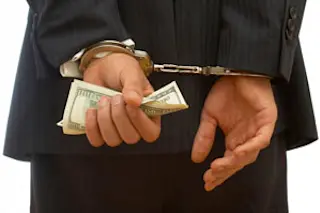Most of us would consider ourselves honest people---but that doesn't stop us from fudging the rules in favor of our team, giving an inflated report of our own performance, or buying knock-off accessories rather than the legit version. At Wired, Joanna Pearlstein talks to behavioral economist Dan Ariely about what leads us to lie, cheat, and steal---and rationalize our behavior to ourselves as not being so bad.
Wired: You write that people find it easier to rationalize stealing when they’re taking things rather than actual cash. You did an experiment where you left Coca-Colas in a dorm refrigerator along with a pile of dollar bills. People took the Cokes but left the cash. What’s going on there?
Ariely:
This, I think, is one of the most worrisome experiments we’ve ever conducted, and it’s again about rationalization. There’s a story about a kid who gets in trouble at school for stealing ...














